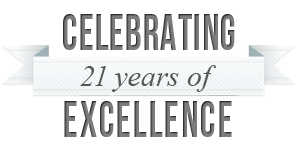I’ve been defying traditional gender roles since I was a child on my grandparents’ tobacco farm in southern Maryland. At a time when women cooked in the kitchen and men worked in the fields, I cut the grass, and collected and sold leftover tobacco to make money. This experience crafted my belief that a person’s genetic makeup doesn’t matter; hard work is rewarded.
Years later, I entered the male-dominated field of engineering and construction management, and began chiseling away at the “concrete ceiling.” I discovered that few women or minorities were rising to leadership roles, but I envisioned bigger things for myself. John Milligan, an African-American man, saw even more in me than I saw in myself. I try to be visionary like that—recognizing the potential in people from all walks of life.
Today at Milligan & Company, I’m paying it forward by helping minorities and women progress in their careers faster and in ways they never thought possible. What’s more, I’m able to unite data, financials, and compliance to make the world outside Milligan more inclusive as well.
However, as many women must, I grapple with work-life balance. How can I work 70 hours a week and maintain a fulfilling personal life? Thanks to technology, I’m problem solving at five a.m. and ten p.m., so that I can drive my two teenage sons to school on a rainy day. Flexibility has been the secret of my success, and I work just as hard to help my staff achieve the same balance.
Milligan has created a diverse and rich environment. Once we established diversity as a major part of our company culture, we didn’t have to consciously work for it any longer. If I disappeared tomorrow, I know that my practice would continue—a testament to those who work alongside me every day.
On Finding Success and Staying Competitive
Diversity and quality are the heart of Milligan & Company’s competitive edge. My job is to match the responsibilities of our firm leaders, who are all entrepreneurs at their core, with authority, so that their diverse talents and backgrounds can benefit our clients. In the civil rights arena, we blend the science of data analysis with compliance to reshape the mindset of business and government executives and systematically reach, include, and empower women and minorities. Our approach is not one of helping organizations introduce “social programs,” but instead, comply with federal laws, like the Disadvantaged Business Enterprise regulations. It’s also the right thing to do for the longevity of businesses. Gone are the days of a homogenous model.
On the Importance of Role Models and Mentors
The best mentors are people not like you. Someone who challenges, rather than mirrors, you will afford a greater understanding of what really makes people tick, especially if their views are different from your own. You can’t do that with a “mini me.” My mentor taught me the nuances of working with people who operate differently than I do. He also encouraged me to avoid getting distracted by hurt and insult. As long as I worked hard, my work would speak for itself.







